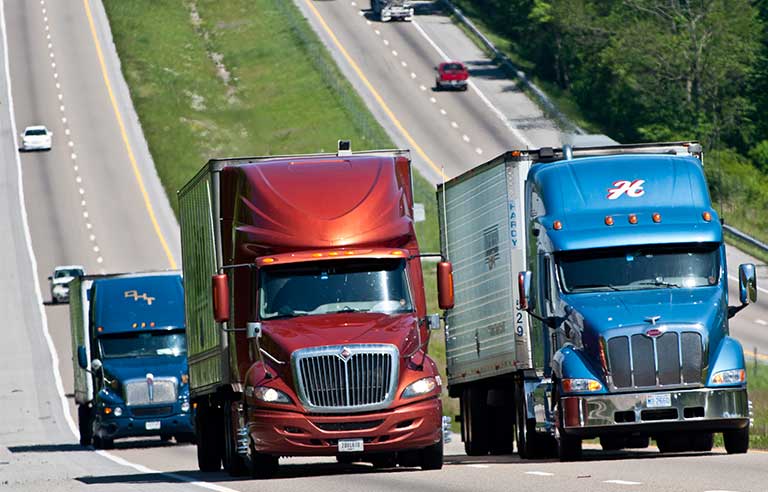
Itasca, IL — Concerns about the COVID-19 pandemic are creating distractions for many commercial drivers, putting the safety of these essential employees – and others – at risk, Brian Fielkow, CEO of Houston-based Jetco Delivery, said during an April 17 webinar hosted by the National Safety Council.
“Let’s face it, none of us are running right now with perfect clarity like we would’ve been a month or two ago,” Fielkow said during the webinar, which focused on safety in the transportation industry amid the pandemic. “[Transportation workers] are concerned about their health. They’re concerned about their family’s health. Maybe there are family members in poor health that they can’t visit.”
Other concerns include worries about layoffs, leaving home while under stay-at-home orders from respective governors and being assigned routes to COVID-19 hot spots.
“If you think the cellphone is a distraction – and it is – consider the impact of COVID,” Fielkow said. “That’s important because you have to approach your employees as if they’re distracted.”
Leaders and managers need to acknowledge worker concerns and “adjust your style to understand and manage distraction,” he said. “Lead with a firm commitment to safety, but with empathy, too. COVID-19 requires us to change how we lead.”
The Federal Motor Carrier Safety Administration on March 18 expanded a national emergency declaration, granting temporary exemption from federal hours-of-service regulations to commercial motor drivers transporting items intended to help in the COVID-19 relief effort. Fielkow is concerned about the exemption.
“Fatigue doesn’t care if we’re in a crisis or if we’re in normal times,” he said. “I’d be very, very careful about disregarding the hours-of-service rules, even if you’re hauling COVID-related materials, because fatigue is fatigue. Let’s be sure that we’re focused on safety above compliance.”
During this crisis, drivers might need more frequent breaks and more say over assigned routes. “Don’t force work,” Fielkow said. “If an employee is not comfortable with a particular assignment, you can’t force it.”
Fielkow also encouraged employers and managers to check in frequently with drivers about any concerns or questions they might have.
“We’ve done that in our company a couple of times and we’ve gotten great questions,” he said. “Those questions led to discussions and conversations, then an understanding that we can be safe and we can operate with a clear head in the COVID-19 era.”
Fielkow described a situation in which a trusted, reliable employee was having performance issues and making mistakes.
“It may be that they’re distracted,” he said. “What you’ve got to do is diffuse that distraction, stay firm on the safety issues, but put the rule books and discipline forms away. Let’s coach. Let’s call time-out. If we start inundating people with every (safety) rule out there, we’re going to lose our peoples’ minds. We’ve got to narrow the focus to what’s most important.”
Employers must understand that their clients and vendors are most likely following the same best practices when it comes to safety and health as well. To do so, Fielkow said having those conversations can advance the topic.
“You’ve got to be a resource that gathers resources,” he said, noting many industry associations are offering free COVID-19-related resources that can be downloaded and shared with clients and vendors.
Jorge Chavez, a Jetco Delivery driver with more than 15 years of experience, discussed his work delivering essential supplies to grocery stores and other businesses during this time.
“For us as professionals, we have to be extra vigilant and alert – checking our mirrors, increasing our following distance, because people could be scared,” Chavez said. “They could be distracted.”
To ensure his own safety, Chavez said staying connected with news about the pandemic, along with federal and local safety guidance updates, has been critical.
“I’m also reading all emails from my company, making sure we’re on the same page,” he said.


